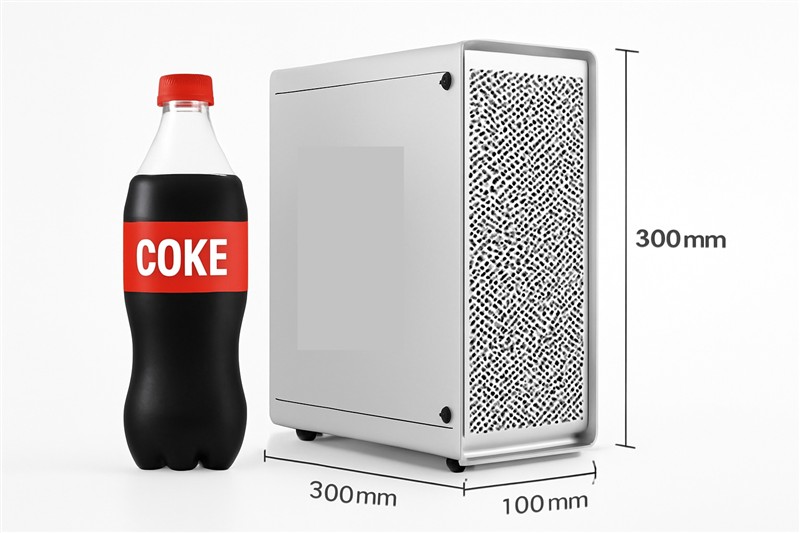
Mini (small) computers use compact enclosures that we build for point-of-sale (POS) systems, where a much smaller footprint is required. What they do is enable you to run a fully functional POS system without sacrificing valuable counter area.
Standard computers dominate prime real estate on the counter that could be better used for displaying products. These computers solve this by fitting seamlessly into tight spots, such as under counters. It makes the counter look professional.
They weigh less than five kilograms, making them very portable. So they are much easier to move. This is especially useful if you frequently do store rearrangements.
If you are looking at the aesthetic, they have significantly improved. The dull, outdated designs are gone. I like the new modern metallic styling. It looks very professional.
As a unit, they integrate well with our POS system. We build them to support key POS equipment such as barcode scanners, receipt printers, and card readers.
Of course, while these small computers offer many compelling advantages, it's essential to consider some potential drawbacks.
Problems
Cost
One important factor is the cost. Because of the precision engineering required for miniaturisation, they usually have a higher price, often 20% to 50% more than standard options.
Heat
When components are packed tightly into a smaller space, airflow becomes restricted, causing higher temperatures. As the fans need to be smaller, they spin faster. This often results in increased noise levels. As a result, we tend to opt for less powerful processors.
Performance
They excel in everyday POS operations. I would not recommend them for computers that need raw power.
Upgradeability
It is often limited due to its compact internals. They have fewer expansion slots and restricted space. Adding additional components is challenging. Generally, we cannot upgrade them if something is required.
Cleaning
The tight layout makes it harder to do dusting.
Repairs
They are slightly more difficult. The big problem here is finding parts that fit.
Overall
Despite some drawbacks, we are selling more of these smaller computers, as many retailers today have space constraints.
Written by:

Bernard Zimmermann is the founding director of POS Solutions, a leading point-of-sale system company with 45 years of industry experience, now retired and seeking new opportunities. He consults with various organisations, from small businesses to large retailers and government institutions. Bernard is passionate about helping companies optimise their operations through innovative POS technology and enabling seamless customer experiences through effective software solutions.


